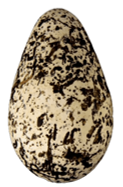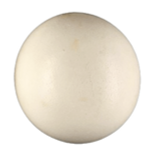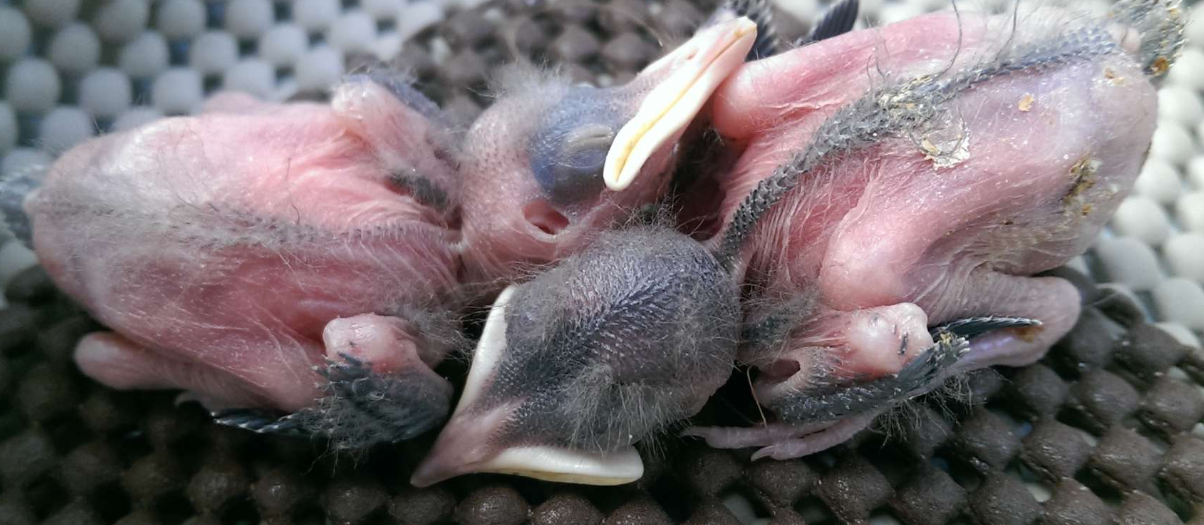Ornithology test #3
1/38
There's no tags or description
Looks like no tags are added yet.
Name | Mastery | Learn | Test | Matching | Spaced |
|---|
No study sessions yet.
39 Terms
Nest designing attention by the incubating parent help to keep the average temperature of a developing egg at
37 degrees celcius
How do moundbuilders in particular the mallefowl keep their eggs at constant temperature?
Addie and removing sand to ensure that the internal temperature remains within the range of incubation
In class, we mentioned several examples of how specific nest perform the important function of protecting the eggs. Give four examples of unique approaches to egg protection that show up in the specifics of nest construction
Building next on cliff ledges
Camouflage
Tower of rocks in the water
Floating nests tethered to vegetation
What is the definition of clutch size?
The amount of eggs that are laid

pyriform egg
Which egg shape would be most likely found in a burrow
Spherical or oval shape

As a general rule, the bigger the bird the (blank) the egg
Bigger
As a percentage body weight, which bird lays the largest egg
Kiwi
In non-spherical eggs, most markings are deposited on the (blank) end of the egg
Blunt
Egg markings are made in the (blank) a section of the avian
Uterus
Which of the following is not true of egg white
It is produced before the yolk is produced
The major cation is an egg shell is
Ca2+
which of the following is not one of the three membranes that form during embryological development of a chick
Palisade
Describe the function of an eggshell and any changes in its composition over the course of chick development
Protection
It acts as a physical barrier, protecting the embryo from mechanical damage, bacteria, and parasites.Gas Exchange
The shell is porous — it has thousands of tiny pores that allow oxygen in and carbon dioxide and water vapor out, enabling respiration.Water Regulation
It helps control water loss, maintaining a proper balance of moisture so the embryo doesn’t dry out or drown.
Indeterminate egg-layers continue to lay eggs to make up for any eggs that might be artificially removed from a nest
True
describe the bird that would most likely have a larger clutch size First year or second year female.
second year female
describe the bird that would most likely have a larger clutch size. Bird nesting on an island or birds nesting on the mainland
Bird nesting on the mainland
describe the bird that would most likely have a larger clutch size. Bird nesting at high elevation or birds nesting near sea level
Birds nesting at high elevation
describe the bird that would most likely have a larger clutch size. Birds nesting in temperate regions or bird nesting in the tropics
Define brood patch
Generation of young produced from a clutch

the chick above is an example of (blank) because it hatches blind, fearless, and unable to thermoregulate
Altricial chick
If two nests are found of the same species and one has 4 chicks and one has 6, which nest will likely fledge its young first
Species with 4 chicks
Give a piece of experimental evidence that suggests bird parents are severely taxed when feeding/caring for their young
by repeatedly removing eggs ornithologist were able to coerce a northern flicker into laying 71 eggs in 73 days
Give 2 examples of bird species that are known to be brood parasites
Common cuckoo and Brown-headed cowbird (avoid raising their young)
Describe the phenomenon of egg races and describe the various features of brood parasites that have been found to match their host
Egg races = host-specific, genetically distinct lineages of a brood parasite that lay eggs mimicking their host’s eggs.
which bird probably lives the longest, a great horned owl, wood thrush, or chickadee
Great Horned Owl
Estimate the average lifespan of an American Robin
9 years
Three symbols show that S3, L3, and B3 might show up in an avian life table. what does each symbol mean?
S3 = survival rate from age 3 to age 4
L3 = proportion of cohort still alive at age 3
B3 = birth rate at age 3
what would most likely have the higher annual survival rate. The month of May for a migrant species or the month of August for a migrant species
The month of august for a migrant species
what would most likely have the higher annual survival rate. An average lifespan of 23 years or an average life span of 6 years
An average lifespan of 23 years
what would most likely have the higher annual survival rate. a yearlong resident of the tropics or a yearlong resident of Ohio
A yearlong resident of the tropics
Sf x S1 x S2 =
L3
If the net reproductive rate of a population is 1.24, then the population is
Growing
In general, higher clutch sizes are found when enviromental conditions are (blank) these population are said to be (blank)
Highly variable, r-selected
Which type of species (K-selected or r-selected) would recover more quickly from a severe winter storm inflicting heavy mortality
r-selected
which type of species (K-selected or r-selected) would most likely take several years to reach sexual maturity
K-selected
How long does it take for most mother birds to generate an egg inside their bodies?
24 hours
which bird is most likely to begin incubating its eggs as soon as the first one is laid
Owl
What is the technical definition of a fledged bird
A young bird that has developed wing feathers large and strong enough for flight and has left the nest, at least partially capable of sustained flight.